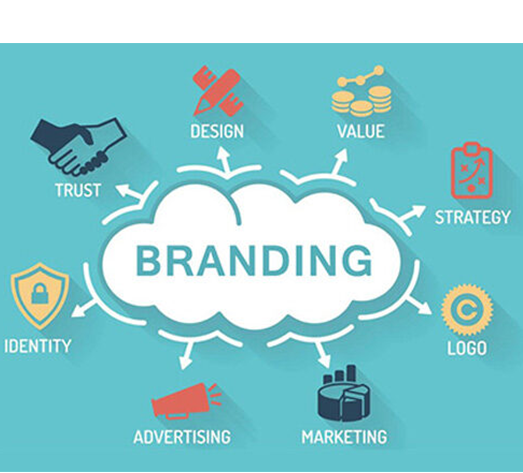
Branding

Why is branding important?
If the explanation of branding was simple, there would not be so much ambiguity and dissonance regarding the concept. Still, for the most part, a strong understanding of branding requires a decent grasp of business, marketing, and even (human) relational basics. Branding is such a vast concept that a correct definition that truly encompasses everything that it represents would not bring too much clarity to the subject just by itself.Branding is absolutely critical to a business because of the overall impact it makes on your company. Branding can change how people perceive your brand, it can drive new business, and increase brand value – but it can also do the opposite if done wrongly or not at all. Let’s set something straight: Reputation builds up whether the business does something about it or not.
The result can be a good or bad reputation. Understanding and using branding only means that you take the reins and try to control what that reputation looks like. This is why it is recommended to consider branding from the very beginning of your business. Contrary to popular belief, branding is not an “expensive marketing tactic that only big brands use”. On the contrary – branding has a lot to do with common sense and is heavily influenced by the market you’re in and the level you want to play at. Branding involves a consistent mix of different competencies and activities, so its cost can wildly differ from case to case. High-level consultants and flawless implementation will, of course, be more expensive than anything below it. Likewise, branding an international, multi-product business will be much more challenging and resource-heavy than a local business, for example. There is no one-size-fits-all approach.
- Branding is important when trying to generate future business, and a strongly established brand can increase a business’ value by giving the company more leverage in the industry.
- This makes it a more appealing investment opportunity because of its firmly established place in the marketplace.
- The result of the branding process is the brand, which incorporates the reputation and value that comes with it.
- A strong reputation means a strong brand which, in turn, translates into value.
Branding increases business value
The brand is a business asset that also holds monetary value in itself and must have a place of its own on a business’ balance sheet because it increases the overall worth of the company.
Branding generates new customers
A good brand will have no trouble drumming up referral business. Strong branding generally means there is a positive impression of the company amongst consumers, and they are likely to do business with you because of the familiarity and assumed dependability of using a name they can trust. Once a brand has been well-established, word of mouth will be the company’s best and most effective advertising technique.Just like with the reputation of a person, the reputation of a brand precedes it. Once a certain perception of the brand has been established in the market, an uncontrollable chain of propagation begins. Word of mouth will pass the perception on and further reinforce or tarnish the reputation of that brand. If the reputation is positive, potential new customers may come into contact with the brand, having an already-positive association in their mind that makes them more likely to make a purchase from this brand than from the competition.
